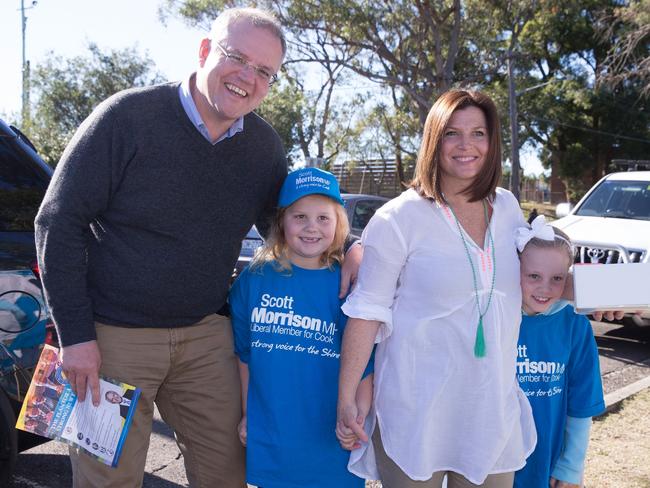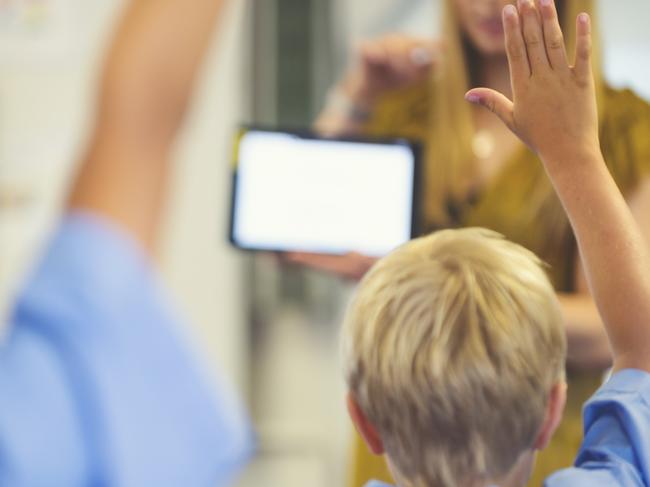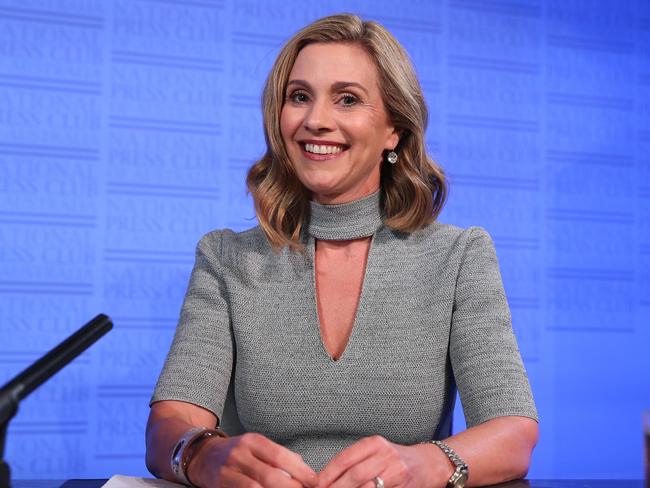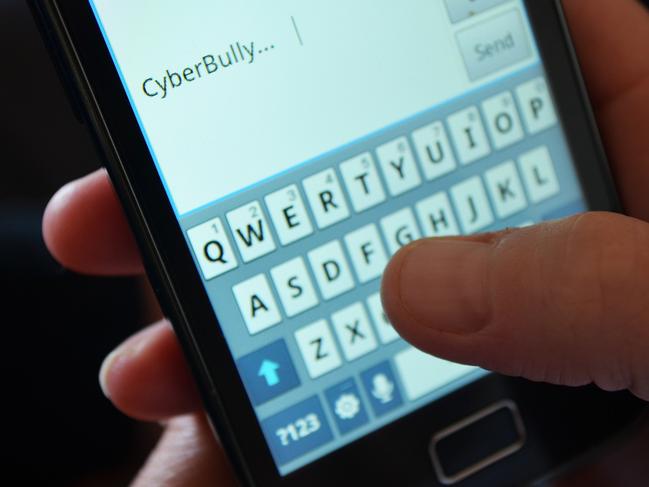Prime Minister Scott Morrison’s plan to keep kids safe online
Prime Minister Scott Morrison has revealed the fears he holds for his daughters in the digital age as he announces the government’s response to tackling online bullies and predators.
Exclusive: Prime Minister Scott Morrison will today declare online safety for kids one of his top priorities heading into the federal election as he reveals his plan for keeping children safe from digital predators and online bullying.
News Corp Australia can reveal the Prime Minister will announce a $10 million grants scheme to fund a range of programs designed to enhance online safety for our kids.
The money could go to schemes such as a “Mathletics-style” training program for primary school kids, specific social media training for teens and pre-teens — particularly teenage girls — to warn them of “catfishing” and the dangers of sending nude pictures online.
Face-to-face training with parents and children in local communities is also a potential contender for the grants.
Mr Morrison will also commission an urgent review into “digital licences” for children, possibly as young as four, to undertake prior to being able to use an internet-connected device in the classroom.
In addition, the efficacy of current digital safety programs will be examined as part of the independent review.
RELATED: This is the economic cost of cyber-bullying, and it will shock you
RELATED: How and when should you talk to your kids about graphic content online
RELATED: This is just one photo that does not belong on Instagram

The announcements will feature heavily in Mr Morrison’s major speech to the National Press Club on Monday, prior to the first sitting week of the parliamentary year beginning on Tuesday.
One in five young people in Australia experience cyber-bullying and a third of children under the age of 18 have experienced unwanted contact from strangers online.
Mr Morrison told News Corp Australia he worried about his own daughters — Lily, 9, and Abbey, 11 — in the digital age and how best to keep them safe from the dangers of the world wide web.
“Every mum and dad, including me and Jen, worries about our kids’ when they go online. It’s terrifying for parents,” the Prime Minister told News Corp Australia.
“Jenny and I sit down with our girls and talk to them about being safe and responsible.
“We’ve seen too many tragic cases of online abuse and bullying. This new suite of measures will help keep our children stay safe online and support parents, community leaders and teachers to do our bit.”
Communications Minister Mitch Fifield said the government’s “major focus” was safety of children online.
“These measures will ensure (kids) have the knowledge and practical skills they need to be safe and responsible online,” Senator Fifield said.
MORE: Labor’s $6.1 million toy cash splash

The new Online Safety Grants Program will be administered by the Office of the eSafety Commissioner and will enable non-government organisations to roll out evidence-based programs to increase cyber awareness.
Grants will be available each year from 2019-20 to 2022-23.
ESafety Commissioner and former Microsoft and Twitter executive, Julie Inman Grant, said the $10 million grants scheme was hugely welcomed.
“We welcome the opportunity to provide financial support through an open and transparent grants process that will help us scale to meet the needs of Australian children, young people and at-risk communities,” she said.
The independent review into digital licences and education programs will consider competency-based assessment tools for online safety that are directed towards children.
It is expected that the review will be finalised in the second half of 2019.
News Corp Australia first revealed last week that Mr Morrison had been asked to review digital licences by eminent child psychologist Michael Carr-Gregg.
Dr Carr-Gregg said the review and the $10 million grants funding would make a serious dent in making our children safer online.
“I think this is the single most important initiative and spend that we can take to reduce the psychological morbidity that comes from our kids being online and it is the most important thing we can do to confront the psychological impact on our young people,” Dr Carr-Gregg told News Corp Australia.

Alannah & Madeline Foundation CEO Lesley Podesta said ongoing investment in digital education was critical and welcomed the Prime Minister’s announcement.
“The tragic death of Amy ‘Dolly’ Everett brought home to everyone that we need to do more to protect our children,” she said.
“Like any environment where there are unknown threats, children need to know what to look out for and how to deal with threats when they arise. Every child should be able to feel safe and act responsibly online”.
Youth mental health service ReachOut also welcomed the funding but said any solutions had to be in consultation with young people.
“Innovative solutions are required and must be co-designed with young people, schools and the companies that design and build these platforms,” CEO Ashley de Silva said.
“The reality is that making the online world safer through innovation will take time.”

Kids Helpline said more than 3500 young people contacted its service about cyber-bullying or an online safety issue last year.
According to figures from the Office of the eSafety Commissioner a total of 24 per cent of kids aged 8 to 12 received unwanted contact from strangers online in 2016/17 and this rose to nearly half of all 13 to 17-year-olds (42 per cent).
A total of 15 per cent of primary school children aged 8 to 12 received threats or abuse online in the 12 months to June 2017 and this rose to 26 per cent for teens.
The government’s announcement came as Labor too said it would commit to digital licences for kids.
“For years our kids have been getting a pen licence as they learn to write — this is the pen licence for the digital world,” Opposition Education spokeswoman Tanya Plibersek said.
HOW KIDS ARE IMPACTED ONLINE
— 33 per cent of all young Australians experience unwanted contact, contact with strangers and unwanted content.
* 8-12 year-olds — 24 per cent
* 13-17 year-olds — 42 per cent
— 21 per cent of all young Australians experienced social exclusion, threats or abuse
* 8-12 year-olds — 17 per cent
* 13-17 year-olds 26 per cent
— 19 per cent of all young Australians felt they had suffered reputational damage online
* 8-12 year-olds — 12 per cent
* 13-17 year-olds — 25 per cent
— 36 per cent of all young Australians didn’t feel good about themselves after a negative online experience
* 8-12 year-olds — 37 per cent
* 13-17 — 34 per cent
— 35 per cent of all young Australians felt anger, sadness, fear, helpless, without power after a negative online experience
* 8-12 year-olds — 35 per cent
* 13-17 year olds — 35 per cent
— 24 per cent of all young Australians felt left out/lost friendships as a result of a negative online experience
* 8-12 year-olds — 25 per cent
* 13-17 year-olds — 24 per cent
Source: Office of the eSafety Commissioner


